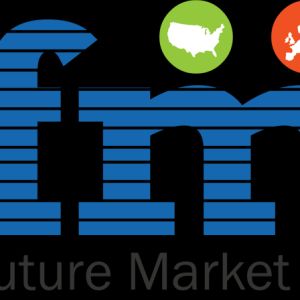Plant-based Biologics Market : Consumption, Revenue, ApplicationsPosted by Pareesh on December 24th, 2018 Rising demand for human biologics cannot be fulfilled by currently used mammalian cell culture production platforms, as these platforms are highly expensive and have limited scalability. However, recent developments in plant expression vectors, downstream processing, and glycoengineering have established plants as a superior alternative to biologic production. Plants not only offer the traditional benefits of proper eukaryotic protein modification, but also have the potential to develop biologics at a lower cost with high scalability. They increase the production of biologics at unprecedented speed and also helps in controlling potential pandemics for better efficacy or safety. Plant-based biologics is expected to be the next major commercial development in the field of biotechnology. Some of the advantages offered in terms of product safety, production scale and economy, ease of storage, and distribution cannot be fulfilled at same time by any other current commercial system. They also provide the opportunity to supply low-cost drugs and vaccines to the emerging economies. Usage of plant-based cell line instead of mammal cell lines to produce biologic drugs came to the forefront when various companies were trying to scale up the alternative process in an effort to produce treatment for Ebola. The approval of the first plant-made biologic (PMB) - taliglucerase alfa for injection by the U.S. Food and Drug Administration (USFDA) for treating Gaucher's disease in 2012 proclaimed a new era for PMBs and triggered the innovation in the field of biopharmaceuticals. Plant-based Biologics Market – Dynamics Increasing demand for biologics for various chronic diseases and rising investment in R&D for the production of biologics is expected to contribute significantly to the growth of plant-based biologics market. According to Biotechnology Innovation Organization (BIO) 2015, over 250 biologic therapies and vaccines have changed the lives of hundreds of millions of patients. Moreover, according to the same source, over 900 biologics are currently (2018) under the stage of development for over 100 diseases in the U.S. According to the Pharmaceutical Research and Manufacturers of America (PhRMA), 2016, member companies invested around US$ 58.8 billion in research and development in 2015, of which, majority of the investment was made by all the biopharmaceutical companies in the U.S. for the treatment of rare diseases. Many biopharmaceutical companies are entering into developing plant-made pharmaceuticals using various plants such as tobacco, duckweed, moss, alfalfa, and other plants, which is expected to propel growth of the plant-based biologics market. For instance, in September 2015, LeafBio, Inc., the commercial partner of Mapp Biopharmaceutical, Inc. (Mapp), was granted fast track designation by the U.S. Food and Drug Administration (FDA) for their plant-made drug called ZMapp for the treatment of Ebola virus disease. Download the PDF brochure: https://www.coherentmarketinsights.com/insight/request-pdf/2394 Plant-based Biologics Market – Regional Analysis On the basis of region, the global plant-based biologics market is segmented into North America, Latin America, Europe, Asia Pacific, Middle East, and Africa. North America is expected to be the most lucrative region in the plant-based biologics market over the forecast period. This is owing to the presence of various private and government research organizations focused on R&D activities to develop plant-based biologics in this region. For instance, Fraunhofer Center for Molecular Biotechnology completed phase I clinical trials for the study of safety and immunogenicity of plant-derived recombinant protective antigen (Biological: PA83-FhCMB) for anthrax vaccine in healthy adults in year 2015. Furthermore, key players in North America are focused on conducting clinical trials to develop plant-based biologics for the treatment of various chronic diseases, which is further expected to drive growth of the plant-based biologics market in this region. Plant-based Biologics Market – Competitive Landscape Major players operating in the global plant-based biologics market include PlantForm, IBio Inc., Mapp Biopharmaceutical, Inc., Pfizer Inc., Ventria Bioscience, Medicago Inc., Greenovation Biotech GmbH, Kentucky BioProcessing, PhycoBiologics Inc., Synthon, Fraunhofer IME, Healthgen, PlanetBiotechnology, and Icon Genetics GmbH. Key players in plant-based biologics market are focused on adopting market strategies such as collaborations, mergers & acquisitions, and new product development, in order to retain dominant position in the market. For instance, in August 2017, Japanese company named Denka acquired German plant biotech Icon Genetics Inc. for approximately US$ 85.0 million. This acquisition will help Denka to focus on research and development in the vaccines and diagnostic reagents business and to continue development of new biopharmaceuticals, including biosimilar and ‘biobetter’ antibodies. About Coherent Market Insights: Coherent Market Insights is a prominent market research and consulting firm offering action-ready syndicated research reports, custom market analysis, consulting services, and competitive analysis through various recommendations related to emerging market trends, technologies, and potential absolute dollar opportunity. Contact Us: Mr.Shah Like it? Share it!More by this author |


